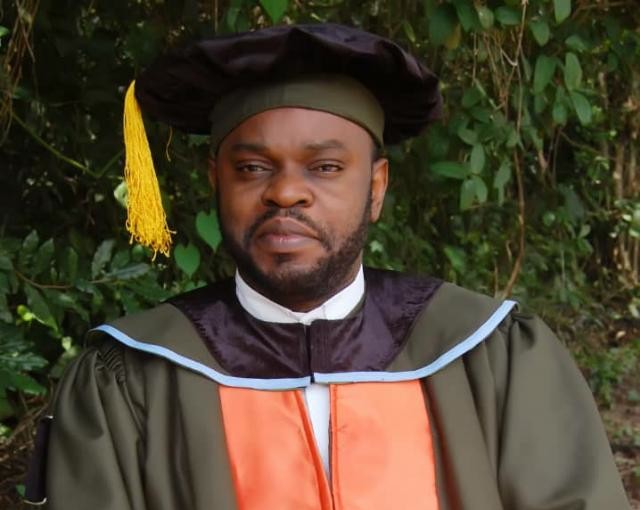A University Don, Professor Ikechukwu Anthony Kanu has called for a mental shift in people’s understanding and presentation of migration.
Kanu who made the call in his keynote address at the just concluded Global Migration Summit organized by the Journalists International Forum for Migration (JIFORM) in Abuja with the theme, “Migration: The Economy, Human Security and Diaspora Value”, stated that barely a day goes by without multiple media reports both in traditional and the social media focusing on aspects of migration, frequently on negative aspects.
He observed that while these reports may not be entirely false, however, they were only versions of a single story about migration.
According to him, “These headlines configure the mind, such that it becomes difficult for us to see migration as anything but a criminal enterprise, a single story of catastrophe with no possibility of feelings more complex than pity and rage, and no possibility of connections as human equals. Migrants have been presented in the media as one thing over and over again and they have gradually become that.
“To insist only on these negative stories is to flatten the experience of migrants and overlook its indispensable highpoints. Single stories create stereotypes, and the problem with stereotypes is not that they are untrue, but that they are incomplete. The consequence is that it robs migrants of dignity and makes our recognition of our equal humanity with them difficult. Stories have been used to dispossess and malign migrants; but they can also be used to empower and humanize them.”
While pointing out that there were incredible stories of migrants, Prof. Kanu posited “no one remembers the story of Barrack Obama, the 44th President of the United States of America, who is a migrant from Kenya, East of Africa. No one tells the story of Cornel Ronald West, a leading scholar in the United States of America, with a migrant background. No one remembers the story of Chimamanda Ngozi Adichie, a migrant of Nigerian origin in the United States of America. No one remembers Alexander Miles, the first African-America to incent the elevator. No one remembers Shirley Jackson who invented the touch-tone telephone. And yet, these are migrants with a story to be told.”
“There is need for a mental shift in our understanding and presentation of migration. This is exactly why the Journalists International Forum for Migration (JIFORM) has brought us together to establish the nexus between migration and development”, he said.
He observed that a discuss on migration and development became relevant as transnational migrants and returning migrants contribute enormously to investments, transfer of technology and skills, human capital formation, business links, good governance among others to their countries of origin.
Kanu further noted that the history of human migration and development were intertwined adding that the nexus between the two was currently becoming more popular.
“This is rightly so because migration is one of the defining features of the 21st century and contributes significantly to all aspects of economic and social development. Migration is a veritable means of development with a life-changing experience for migrants and their communities, both communities of origin and destination. Migrants and the Diaspora are agents of development and opportunities in their homelands and destination countries.
“In 2018 alone, International migrants, 258 million people, about 3% of the world population remitted over 689 billion USD to their homelands. $45bn of this total went to sub-Saharan Africa. Migrants’ remittances also include transfers and circulation of ideas, skills, knowledge, entrepreneurship and building of investment networks. This population equally impacts positively the socio-political landscape and helps in breaking down varied stereotypes, such as gender and classism, which endanger the full development of all citizens.
“Migrants’ contributions to their new communities in their destinations are also dual in terms of economic and social impacts that are of substantial development benefits. The whole financial returns migrants send back home account for only 15% of their entire earnings. The remaining 85% is spent in their destination communities in form of payment of taxes, housing, goods, and services.
“This is one visible way, apart from increasing the labor force; migrants contribute to promoting growth and prosperity of their new communities. Enormous also are the social, cultural and value enrichment they bring to their new homes. Thus the goal of maximizing the migration and development nexus as proposed in the United Nations’ 2030 Agenda for Sustainable Development together with the Global Compact for Safe Orderly and Regular Migration is a win-win benefit for all involved.
“In recognizing migration as a cross-cutting issue and key to achieving all the Sustainable Development Goals, the United Nations’ 2030 Agenda became the first time an internationally negotiated development agenda recognizes the contribution of migration to development. Eleven out of the seventeen goals contain targets and indicators that are relevant to migration or mobility “, he stated.
He therefore concluded by saying that the discussion on the relationship between migration and development had a great deal to do with the management of migration by nations, especially in the area of harnessing the potentials of citizens living abroad as they constituted a major source of remittances, foreign investment, expertise and skills.
Send your news, press releases/articles to augustinenwadinamuo@yahoo.com. Also, follow us on Twitter @ptreporters and on Facebook on facebook.com/primetimereporters or call the editor on 07030661526, 08053908817.

